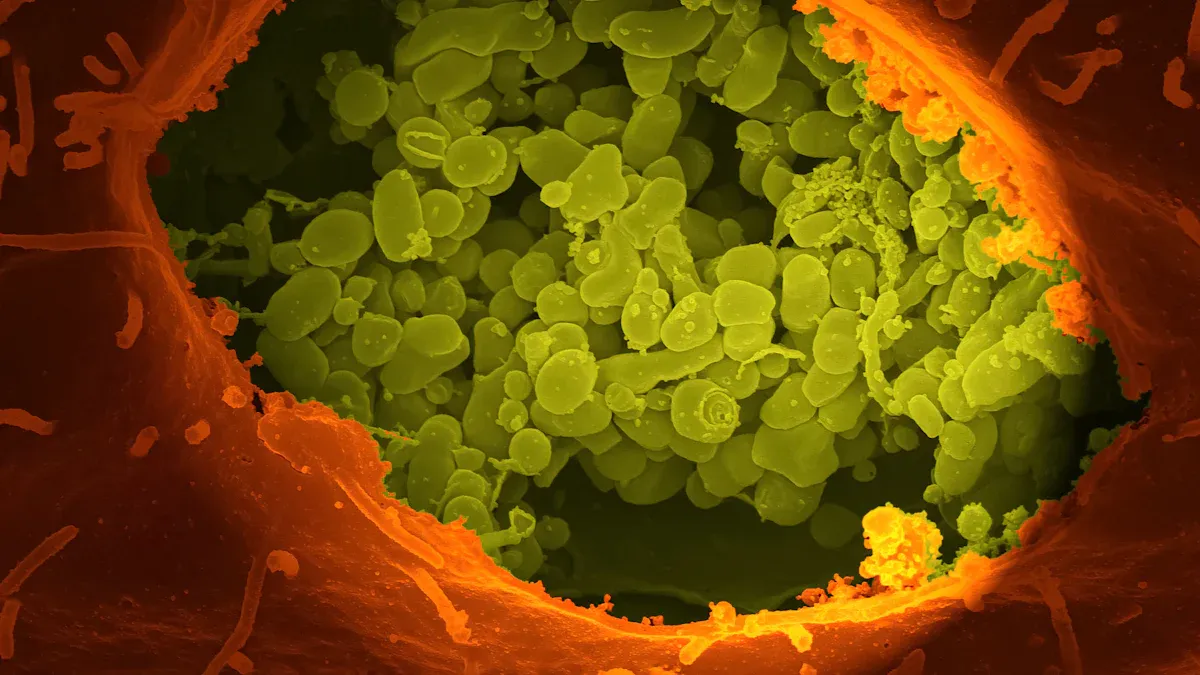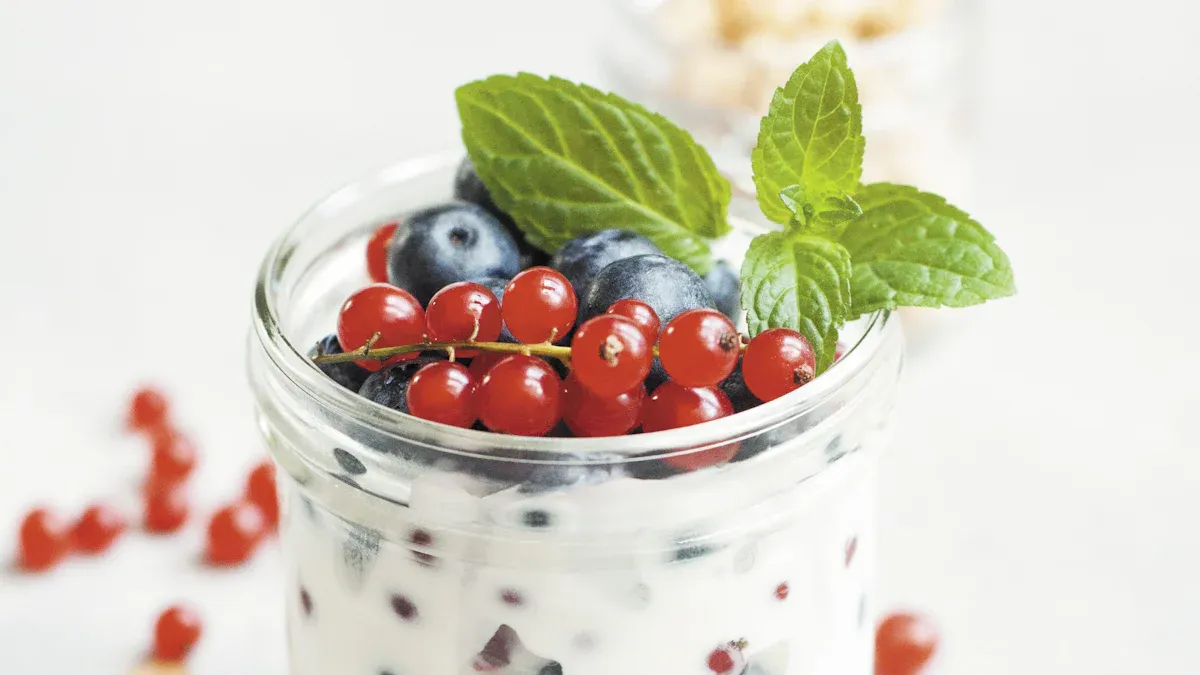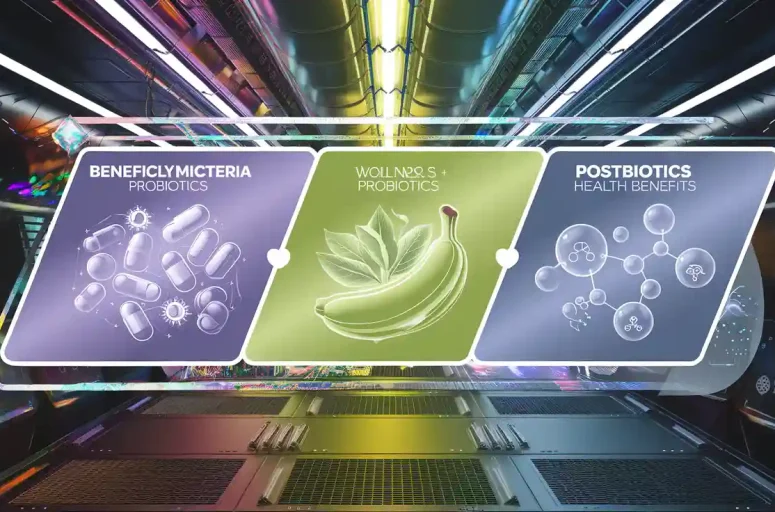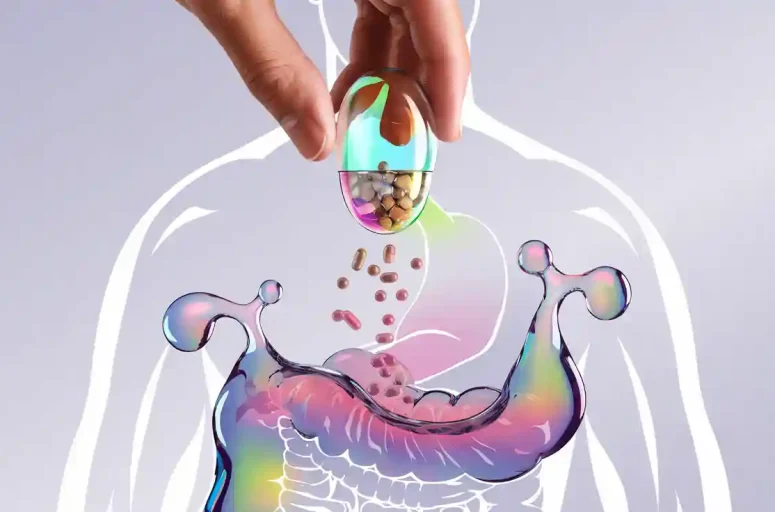
Your gut is important for your overall health. To keep it healthy, you need both probiotics and prebiotics. Probiotics add good bacteria to your gut. Prebiotics are food for these bacteria, helping them grow. Together, they work better to improve gut health. For example:
Synbiotics, which mix probiotics and prebiotics, can increase helpful fatty acids by 2.3 times more than using one alone.
They also lower inflammation by 40%, making your gut healthier.
Using gut health supplements or eating a variety of foods helps keep your gut strong and balanced.
Key Takeaways
Probiotics are helpful bacteria that keep your stomach healthy. They are in foods like yogurt and pickled cabbage.
Prebiotics are fibers that feed the good bacteria in your stomach. Foods like garlic, onions, and grains are good sources.
Using probiotics and prebiotics together is best for your stomach. This mix helps digestion and makes your body stronger.
Probiotics work fast to fix stomach problems but don’t last long. You need to eat them often for lasting effects.
Prebiotics help your stomach stay healthy by growing good bacteria. They give long-term support for your gut.
Eating many high-fiber foods and fermented foods can help your stomach. It also makes your whole body healthier.
Synbiotics mix probiotics and prebiotics to improve your stomach health. They work better together than using just one.
To keep your stomach healthy, eat foods with probiotics and prebiotics daily.
Understanding Probiotics and Their Benefits
What Are Probiotics?
Probiotics are tiny living bacteria and yeasts that help your body. They are often called good bacteria because they keep your gut healthy. Probiotics add more helpful bacteria to your digestive system. You can find them in fermented foods and supplements, making them easy to eat.
How Probiotics Support Gut Health
Probiotics are important for keeping your gut in good shape. They stop harmful bacteria from growing and help good bacteria thrive. This balance helps with digestion, strengthens your immune system, and may even improve your mood. For example, studies show probiotics can ease irritable bowel syndrome (IBS) symptoms by 21% and make older adults feel happier. But their effects don’t last forever, so you need to take them regularly.
New probiotic technology, like microencapsulation, helps 90% of probiotics survive digestion. This means more good bacteria reach your gut to do their job. Using different probiotic strains, like Lactobacillus acidophilus and Bifidobacterium lactis, can lower cholesterol and improve gut health.
Common Sources of Probiotics
Fermented Foods
Fermented foods are great sources of probiotics. They have live bacteria that grow during fermentation. Foods like sauerkraut, kimchi, and kombucha are popular choices. Sauerkraut is especially full of good bacteria for your gut. Adding these foods to your meals is a simple way to get more probiotics.
Dairy Products
Dairy foods like yogurt and kefir are well-known for probiotics. Yogurt has good bacteria that help keep your gut healthy. Look for labels that say “live and active cultures” to make sure they have probiotics. Kefir, a fermented milk drink, also has many probiotics to support digestion.
Gut Health Supplements
If you don’t eat enough probiotic foods, supplements can help. These products give your gut a large amount of live bacteria. Some supplements mix probiotics with prebiotics to work even better. Others are made for special diets, like FODMAP-friendly options, to support your gut health.

Probiotics are a great way to keep your gut healthy. By eating fermented foods, dairy, or taking supplements, you can enjoy their benefits.
Exploring Prebiotics and Their Role in Gut Health

What Are Prebiotics?
Prebiotics are parts of food your body can’t digest. They act as food for the good bacteria in your gut. In 2017, experts defined prebiotics as “a substance used by gut microbes to improve health.” These help the good bacteria grow, which boosts your health. Scientists stress the need for clear proof to back up prebiotic benefits. This ensures health claims about prebiotics are based on solid science.
Unlike probiotics, which add new bacteria, prebiotics feed the ones already in your gut. Many high-fiber foods have prebiotics, so it’s easy to eat them. By helping good bacteria grow, prebiotics keep your gut balanced. A healthy gut supports digestion, immunity, and even mental well-being.
How Prebiotics Nourish Gut Bacteria
Prebiotics are like fuel for the good bacteria in your gut. When you eat prebiotic foods, they pass through your stomach without breaking down. They reach your colon, where gut bacteria ferment them. This process makes short-chain fatty acids (SCFAs), which give energy to your gut lining and lower inflammation.
Studies show prebiotics can increase good bacteria like Faecalibacterium prausnitzii. For example, kiwifruit capsules help grow these bacteria in people with constipation. Mixing polyphenols with fiber makes fiber even better at feeding gut bacteria. Legume sprouts are another prebiotic source that helps gut bacteria and probiotics. These examples show how prebiotics keep your gut healthy.
Common Sources of Prebiotics
High-Fiber Vegetables
Vegetables with lots of fiber are great for prebiotics. Foods like garlic, onions, leeks, and asparagus feed your gut bacteria. These veggies also reduce inflammation and help digestion. Eating different high-fiber vegetables gives your gut the food it needs.
Whole Grains
Whole grains like oats, barley, and quinoa are full of prebiotics. The fiber in these grains is fermented by gut bacteria into SCFAs. Eating whole grains can improve your gut health, heart health, and even help with weight control. Choosing whole grains instead of refined ones is an easy way to get more prebiotics.
Fruits
Fruits like bananas, apples, and berries are rich in prebiotics. They have natural fibers that help good bacteria grow. Bananas, for example, have inulin, a type of prebiotic fiber. Eating these fruits often keeps your gut healthy and gives you important nutrients.
Health Benefit | Evidence Source |
|---|---|
Lower risk of type-2 diabetes | Villegas et al., 2004 |
Better heart health | Esquivel, 2022; John, 2022 |
Healthier gut bacteria | Migliozzi et al., 2015 |
Help with weight control | Greger, 2020; Rinott et al., 2022 |
Less inflammation | Blatchford et al., 2017; Plamada & Vodnar, 2021 |
Mental health improvements | Balasubramanian et al., 2024; Herselman et al., 2022 |
Adding prebiotic foods to your meals is simple and helpful. Eating high-fiber vegetables, whole grains, and fruits feeds your gut bacteria. This keeps your gut healthy and gives you many health benefits.
Probiotics vs. Prebiotics: A Comparison
Key Differences Between Probiotics and Prebiotics
Probiotics and prebiotics help your gut in different ways. Probiotics are live, helpful bacteria found in fermented foods or supplements. They add good bacteria directly to your gut. Prebiotics are fibers your body can’t digest. They feed the good bacteria already in your gut. Probiotics work quickly, while prebiotics take time to keep your gut balanced.
Aspect | Probiotics | Prebiotics |
|---|---|---|
Moderate | Moderate | |
Inflammatory Response | Limited | Partial |
Gut Barrier Function | Direct impact | Indirect support |
Probiotics give fast relief for short-term gut problems. But their effects last only a few weeks without regular use. Prebiotics are more stable and cost less. About 60% of people notice benefits from prebiotics. Their success depends on the bacteria already in your gut. Using both together works best for improving gut health.
Benefits of Probiotics for Gut Health
Probiotics bring many benefits to your gut. They increase the number of good bacteria and improve balance. This can help with regular bowel movements if you’ve been irregular. Probiotics also make your gut barrier stronger, keeping harmful bacteria out.
Research shows probiotics help with digestion and boost your immune system. For example, studies found probiotics can shorten colds. They may also lower cholesterol and improve blood sugar, but you need to take them often. Probiotics also support vaginal health by adding good bacteria. This lowers the chance of infections like UTIs.
To get these benefits, eat foods like yogurt and kefir. These are full of good bacteria that help your gut. If you don’t eat enough probiotic foods, supplements can help too.
Benefits of Prebiotics for Gut Health
Prebiotics help your gut over time by feeding good bacteria. They help make short-chain fatty acids (SCFAs), which protect your gut lining and reduce swelling. Prebiotics also improve digestion and help your body absorb nutrients. For example, they can boost calcium absorption by up to 20%, which helps your bones.
Studies show prebiotics can increase how often you go to the bathroom by 30–40%. This is helpful for people with constipation. Prebiotics can also help with weight control. Some studies show they can lower BMI by 0.3–0.5 kg/m². Eating high-fiber vegetables, whole grains, and fruits gives your gut bacteria the food they need.
Using both probiotics and prebiotics together gives the best results. This combination keeps your gut healthy, improves digestion, and boosts your overall health.
How Probiotics and Prebiotics Work Together
Working Together for Gut Health
Probiotics and prebiotics make a strong team for gut health. Probiotics add live, helpful bacteria to your gut. Prebiotics act as food for these bacteria, helping them grow. When used together, they form synbiotics, which boost their benefits. For example, synbiotics can make 2.3 times more short-chain fatty acids (SCFAs) than using one alone. SCFAs help your gut lining and lower inflammation.
Probiotics like Lactobacillus make your gut barrier stronger by tightening its lining. Prebiotics like inulin help good bacteria grow and improve calcium absorption by 27%. Synbiotics go further by helping 65% more probiotics survive digestion. This means more good bacteria reach your gut to do their job.
Mechanism | Probiotics | Prebiotics | Synbiotics |
|---|---|---|---|
SCFA Production | Moderate | Moderate | 2.3x increase |
Inflammatory Response | Limited | Partial | 40% reduction |
Gut Barrier Function | Direct impact | Indirect support | Enhanced combined effect |
Using probiotics and prebiotics together makes your gut healthier. This teamwork helps digestion, boosts immunity, and improves overall health.
Keeping Gut Balance Healthy
A balanced gut is key to staying healthy. Your gut has trillions of bacteria, both good and bad. If bad bacteria take over, it can cause stomach problems, weak immunity, or even mood issues. Probiotics and prebiotics help keep this balance by supporting good bacteria.
Probiotics add more good bacteria to fight harmful ones. Prebiotics feed the good bacteria already in your gut, keeping them strong. Together, they create a healthy environment for good bacteria to thrive. This balance helps with digestion, nutrient absorption, and immunity.
To keep this balance, eat both probiotics and prebiotics. Foods like yogurt and kefir are full of probiotics. High-fiber vegetables, whole grains, and fruits give you prebiotics. Eating these foods helps your gut stay healthy and supports your overall well-being.
Choosing Between Probiotics, Prebiotics, or Both
Understanding Your Gut Health Needs
When to Use Probiotics
Probiotics can help if you have stomach problems like bloating or diarrhea. They add good bacteria to your gut and restore balance. If you’ve taken antibiotics, probiotics can replace the good bacteria lost. Studies show probiotics work fast but last only 1–4 weeks. To keep their benefits, eat probiotic foods or take supplements often.
When to Use Prebiotics
Prebiotics are helpful if your digestion is irregular or unbalanced. They feed the good bacteria already in your gut, helping them grow. Prebiotics are also more affordable and last longer than probiotics. About 60% of people notice better digestion and less swelling with prebiotics.
Things to Think About When Picking Gut Health Supplements
Your Diet and Daily Habits
What you eat and how you live affect your gut health. A diet with fruits, veggies, and grains gives natural prebiotics. If you don’t eat fermented foods like yogurt, probiotic supplements can help. Fiber-rich diets also improve digestion and help with some health issues, like after certain treatments.
Health Problems to Consider
Some health issues need special gut supplements. For example, probiotics like Lactobacillus can ease IBS symptoms. Prebiotics help with constipation by improving bowel movements. Synbiotics, which mix probiotics and prebiotics, improve probiotic survival by up to 42%. They are great for complex gut problems.
Easy Ways to Add Probiotics and Prebiotics
Eating Foods with Both Probiotics and Prebiotics
Eating both probiotics and prebiotics together works best. Pair foods like yogurt or kefir with bananas or oats. This mix helps your gut bacteria grow and stay healthy. A varied diet with fruits, veggies, grains, and fermented foods can reduce the need for supplements.
Using Supplements the Right Way
Choose supplements that match your needs. Probiotic supplements with different strains can fix many gut issues. For prebiotics, pick safe options with proven benefits. Follow the dosage instructions to avoid problems. A balanced diet with supplements improves gut health over time.
Probiotics and prebiotics are important for keeping your gut healthy. Probiotics add good bacteria to your gut. Prebiotics feed the good bacteria already there. Together, they help your digestion, immunity, and overall health. To keep this balance, eat foods with probiotics and prebiotics. Try yogurt, kefir, bananas, and whole grains. Adding these to your meals can make your gut stronger and improve how you feel.
FAQ
What is the main difference between probiotics and prebiotics?
Probiotics are live bacteria that add good microbes to your gut. Prebiotics are fibers that feed the good bacteria already in your gut. Probiotics work fast, but prebiotics give long-term support by helping bacteria grow.
Can you take probiotics and prebiotics together?
Yes, you can take them at the same time. This is called synbiotics. Probiotics add good bacteria, and prebiotics help them grow stronger. Together, they improve digestion, protect your gut, and lower inflammation better than using one alone.
How long does it take for probiotics to work?
Probiotics start working in a few days. But their effects last only 1–4 weeks if you stop taking them. To keep the benefits, eat probiotic foods or take supplements regularly.
Are prebiotics better than probiotics?
Neither is better because they do different things. Probiotics add good bacteria, while prebiotics feed them. Using both together works best for a healthy gut. A diet with both is the ideal choice.
What foods contain both probiotics and prebiotics?
Some foods have both probiotics and prebiotics. For example, yogurt with bananas or kefir with oats. These foods give live bacteria and the fibers they need to grow, which helps your gut stay healthy.
Can probiotics or prebiotics cause side effects?
Probiotics and prebiotics are usually safe. But you might feel bloated or gassy when you first start. These side effects often go away as your gut gets used to them. If they don’t, talk to a doctor.
How do I know if I need probiotics or prebiotics?
If you feel bloated, have digestion problems, or took antibiotics, you might need probiotics. If you’re constipated or want long-term gut health, prebiotics could help. Look at your symptoms and diet to decide.
Are supplements necessary for gut health?
Supplements can help if you don’t eat enough probiotic or prebiotic foods. But a diet with fermented foods, fruits, veggies, and grains usually gives enough. Use supplements only if needed, not as a replacement.


